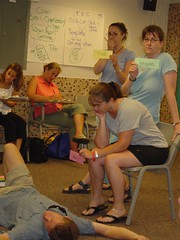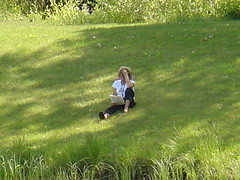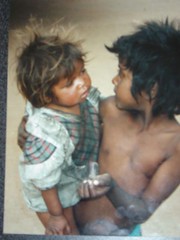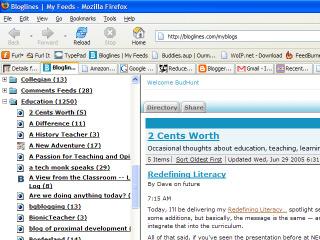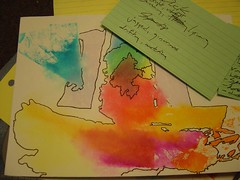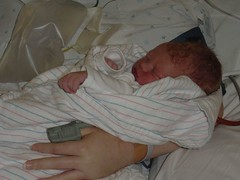A couple of weeks ago, I submitted my final newspaper column for the time being. The newspaper is going to replace me with student writers, which is quite fine with me. I'm a writing teacher -- I love it when kids have something to say AND a place to say it. The local newspaper is a great forum for students. That said, though -- if you need a weekly newspaper columnist, let me know. I work cheap.
Anyway, here's the last piece. Hope you enjoy it.
_________________
When I was in high school, my father wrote me a letter out of the blue.
It was a short piece, a one-page note about the excitement of the “adventure” that I was on (I was on a church mission trip at the time, and was not told where we would be going or what we would be doing until we arrived.). My mother also wrote a letter, making for quite a special moment when I opened the “care package” from home.I still have the letters in a box of treasures that I’ve kept from my childhood. I’ll always have them, because the words are permanent, forever there on the paper for me to read and reread whenever I need a reminder of that special time. I also keep a collection of the letters and cards my wife has written for me. They are in a special place where I can reach them whenever I want a reminder of special moments.
Writing is a way to make a mark on the world and on the people and issues that we care about. We write to share our experiences, our questions, and ourselves. At school, we teach students the conventions of writing so that they can communicate their thoughts, ideas, questions and experiences with whomever they choose to share them.December being a month of gifts and giving, there is no better time to share your writing withthe people who are important to you. Here are a few prompts that you might use to complete a writing project for someone special this holiday. Sit down and try to get some writing done. You might choose a night as a family to sit down together and write presents for each other this year, or for family members in faraway places that can’t be with you. Remember to use all of your senses in your writing – each sense of taste, touch, smell, hearing and sight can bring something special and memorable to your essays, stories, letters and poems.
- Write about how your family spends the holidays. Who or what makes that time together special? What unique family traditions do you have? Ask someone who knows how they might have gotten started and write down what they tell you.
- Think about the places that you travel during this time of year. Who do you travel with? Where do you go? How do you get there? Have any crazy things happened during your travels?
- In many families, holidays involve some pretty important shared meals. Write about a family meal that you remember as being exceptionally good or special or downright unusual. Was it the quality of the food? A special family dish or treat? Smells or tastes? Who was there to share the meal with you? What made it such a special or strange occasion?
- Put all of the names of your family members into a hat. Ask each family member to draw one name. Write about the family member that you’ve picked. What makes them unique or special in your family? What would you like to tell them that you’ve never had the time to say or share? Is there a special memory that you have that you would like to get down on paper? Take an hour as a family to write about each other.
Whatever topic you choose to write about, make sure that you share your writing with your family. You can publish in a variety of ways:
- Send out the best family writing in a holiday letter or card.
- Box and wrap special pieces and give them as gifts.
- Post all the writing on a family website. Share the website with friends and family all over the world.
- Type up the good stuff, frame it, and hang it somewhere around the house where
you will see it regularly. - Set aside a corner of the fridge for your writing. Take turns being the “featured author” at home.
Take the time to write with your family. You will truly treasure the stories and experiences that you have to share with one another.
Bud Hunt is on the board of the Colorado State University Writing Project, teaches at
